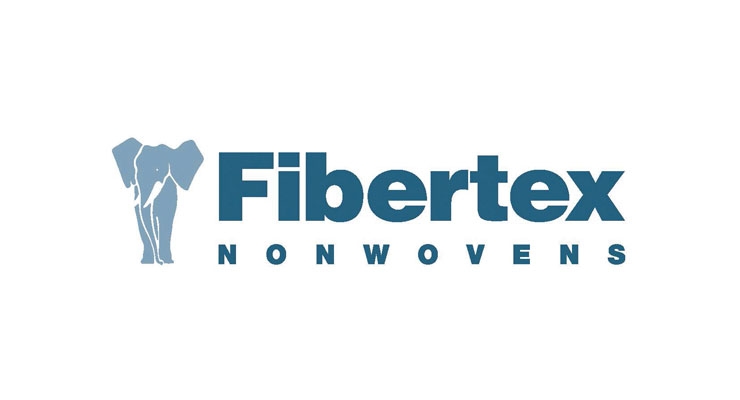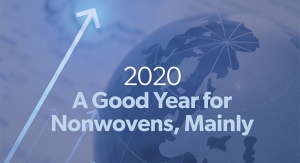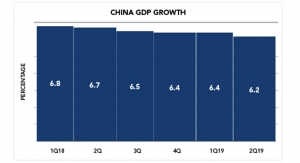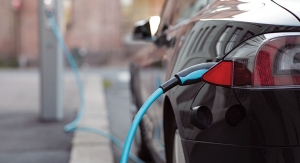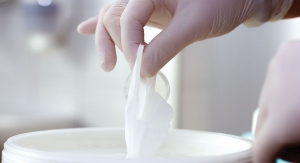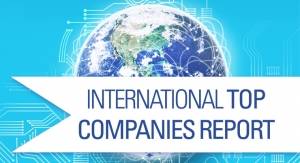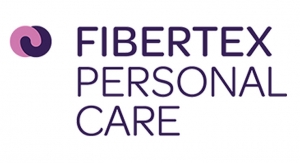09.11.17
Aalborg, Denmark
www.fibertexnonwovens.com
2017 Nonwovens Sales: $217 million
Key Personnel
Jorgen Bech Madsen, CEO; Henrik Kjeldsen, CCO; Lars Bertelsen, COO: Henrik Eigenbrod, CFO; Keld Lauridsen, group R&D director; Bjarne Knudsen, managing director
Plants
Denmark, Czech Republic, U.S., France, Turkey, South Africa, Brazil
Processes
Needlepunch, spunlace, impregnating, coating
Major Markets
Acoustics, automotives, bedding, building, composites, concrete, construction, filtration, flooring, furniture, geotextiles, home and garden, horticulture, medical, wipes
At the start of 2018, Fibertex Nonwovens continued its global expansion through the acquisition of a Brazilian operation. Duci, based in an industrial district west of Sao Paulo, has about 130 employees and generated revenue of about DKK 115 million ($18 million) in 2017.
Duci has a relatively new production platform centered around spunlace technology for technical applications, according to the company.
“Buying Duci was a good opportunity to build our position in South America across markets like automotives, filtration, shoe components and wipes,” says Jorgen Bech Madsen, president of Fibertex Nonwovens. “It is a well driven company with the right technical platform and space for expansion.”
Duci’s technology is similar to crosslapped spunlace technology already employed by Fibertex in France and Turkey. These operations have made Fibertex Nonwovens one of the largest makers of crosslapped nonwovens for technical applications in the world.
Much of Fibertex Nonwovens’ global expansion during the past several years has been achieved through acquisition. It acquired Ribatek, a Turkish company, in 2015, and purchased a U.S.-based needlepuncher in 2014, giving it its first entry into North America. The moves followed similar deals in France and the Czech Republic earlier in the decade.
The company also established a greenfield operation in South Africa in 2010 which mainly focuses on the geotextiles, industrial and automotives markets.
All of this investment has paid off. In 2017, sales at the maker of nonwovens for technical applications increased 9% to reach DKK 1,422 million ($217 million) thanks to broad-based growth across all of the company’s operations. Highlights of the year included growing sales in the automotives market, an improved product mix with higher sales of advanced products and improvements in European sales to the construction industry.
In the U.S., Fibertex’s operation, which was acquired in 2014, has continued to prove itself as a long-term investment for the company. With two needlepunch lines, the facility has grown its sales of value-added products for the composite, filtration and automotives industries and brought the company closer to its customers in North America.
Meanwhile, Fibertex’s South African operation has faced several challenges including raw material shortages and overcapacity in the market, but Bech Madsen remains confident that the business group can help build the company’s overall business by supporting Europe and facilitating growth in business in Asia and India.
While India and Asia continue to be a growth priority for Fibertex, there are currently no plans to acquire or otherwise invest in these areas, he adds.
Over the past several years, Fibertex Nonwovens has developed a solid portfolio of new products that allow it to serve high value markets for nonwovens such as automotives, composites, filtration and acoustics.
To continue to meet the needs of these markets, the company is constantly expanding its facilities and upgrading its lines. For example, the company has added a specialty line for filtration applications in the Czech Republic and undertaken line upgrades across all of its manufacturing sites.
“There is always a lot going on to help add value to product,” Madsen says. “We have the advantage that we master a lot of different technologies.”
www.fibertexnonwovens.com
2017 Nonwovens Sales: $217 million
Key Personnel
Jorgen Bech Madsen, CEO; Henrik Kjeldsen, CCO; Lars Bertelsen, COO: Henrik Eigenbrod, CFO; Keld Lauridsen, group R&D director; Bjarne Knudsen, managing director
Plants
Denmark, Czech Republic, U.S., France, Turkey, South Africa, Brazil
Processes
Needlepunch, spunlace, impregnating, coating
Major Markets
Acoustics, automotives, bedding, building, composites, concrete, construction, filtration, flooring, furniture, geotextiles, home and garden, horticulture, medical, wipes
At the start of 2018, Fibertex Nonwovens continued its global expansion through the acquisition of a Brazilian operation. Duci, based in an industrial district west of Sao Paulo, has about 130 employees and generated revenue of about DKK 115 million ($18 million) in 2017.
Duci has a relatively new production platform centered around spunlace technology for technical applications, according to the company.
“Buying Duci was a good opportunity to build our position in South America across markets like automotives, filtration, shoe components and wipes,” says Jorgen Bech Madsen, president of Fibertex Nonwovens. “It is a well driven company with the right technical platform and space for expansion.”
Duci’s technology is similar to crosslapped spunlace technology already employed by Fibertex in France and Turkey. These operations have made Fibertex Nonwovens one of the largest makers of crosslapped nonwovens for technical applications in the world.
Much of Fibertex Nonwovens’ global expansion during the past several years has been achieved through acquisition. It acquired Ribatek, a Turkish company, in 2015, and purchased a U.S.-based needlepuncher in 2014, giving it its first entry into North America. The moves followed similar deals in France and the Czech Republic earlier in the decade.
The company also established a greenfield operation in South Africa in 2010 which mainly focuses on the geotextiles, industrial and automotives markets.
All of this investment has paid off. In 2017, sales at the maker of nonwovens for technical applications increased 9% to reach DKK 1,422 million ($217 million) thanks to broad-based growth across all of the company’s operations. Highlights of the year included growing sales in the automotives market, an improved product mix with higher sales of advanced products and improvements in European sales to the construction industry.
In the U.S., Fibertex’s operation, which was acquired in 2014, has continued to prove itself as a long-term investment for the company. With two needlepunch lines, the facility has grown its sales of value-added products for the composite, filtration and automotives industries and brought the company closer to its customers in North America.
Meanwhile, Fibertex’s South African operation has faced several challenges including raw material shortages and overcapacity in the market, but Bech Madsen remains confident that the business group can help build the company’s overall business by supporting Europe and facilitating growth in business in Asia and India.
While India and Asia continue to be a growth priority for Fibertex, there are currently no plans to acquire or otherwise invest in these areas, he adds.
Over the past several years, Fibertex Nonwovens has developed a solid portfolio of new products that allow it to serve high value markets for nonwovens such as automotives, composites, filtration and acoustics.
To continue to meet the needs of these markets, the company is constantly expanding its facilities and upgrading its lines. For example, the company has added a specialty line for filtration applications in the Czech Republic and undertaken line upgrades across all of its manufacturing sites.
“There is always a lot going on to help add value to product,” Madsen says. “We have the advantage that we master a lot of different technologies.”

